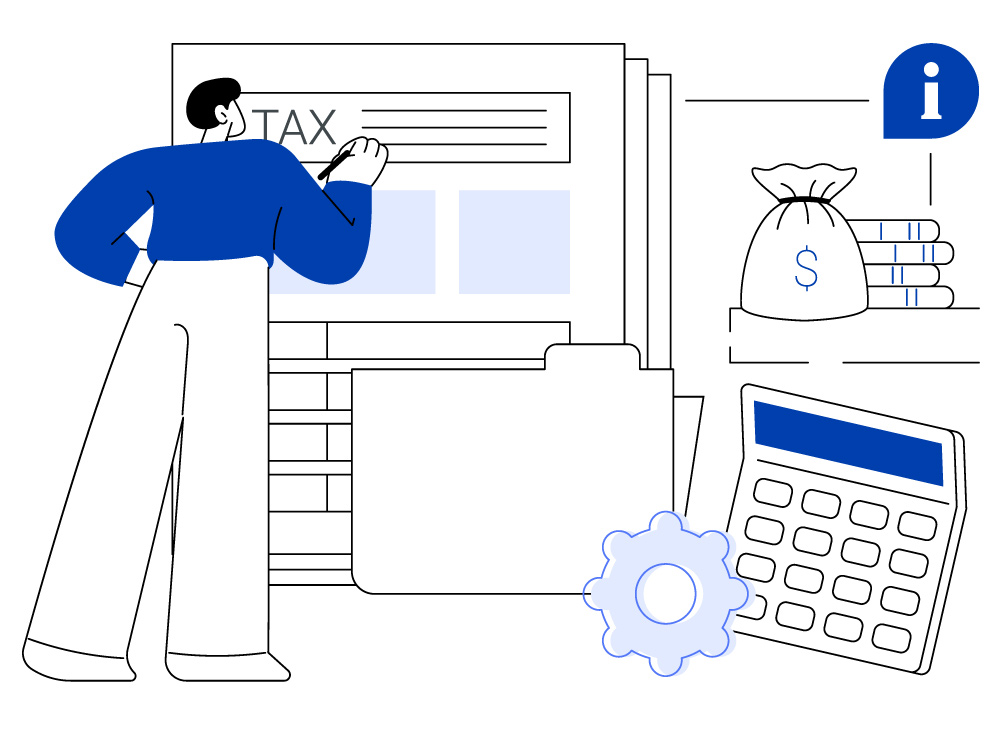
Tax concessions are reductions in the amount of tax that individuals or businesses owe, granted by the government. These concessions are often targeted at specific sectors, such as charities, small businesses, and not-for-profit organisations, providing them with financial relief. In Australia, businesses and organisations can take advantage of various tax concessions depending on their eligibility.
Types of Tax Concessions


Tax concessions reduce the taxable income or the total tax liability of an entity, meaning that the business or individual pays less in taxes. In Australia, to qualify for tax concessions, the applicant must meet specific criteria outlined by the Australian Tax Office (ATO) and other regulatory bodies. Maximise your tax savings with expert advice from a professional Tax Accountant on available tax concessions.
For example, a small business may claim tax concessions like the instant asset write-off, which allows them to immediately deduct the cost of assets purchased for business use, up to a certain limit. Non-profit organisations in Melbourne may qualify for income tax exemptions if they are registered with the Australian Charities and Not-for-Profits Commission (ACNC) and meet other regulatory requirements.
At our firm, we offer expert guidance and services to help you navigate the complexities of tax concessions in Melbourne, Sydney, Brisbane, Tasmania, Geelong and other major cities of Australia. Our team can assist you with identifying and applying for the appropriate concessions based on your organisation’s structure and objectives.
We begin by understanding your business or organisational structure, goals, and the type of activities you engage in. This consultation allows us to determine which tax concessions you may be eligible for.
We thoroughly review your circumstances and financial records to assess eligibility for various tax concessions. This includes checking the criteria for small business concessions, non-profit tax exemptions, and R&D tax incentives.
We assist with preparing and submitting your applications for tax concessions in Melbourne. Our team ensures that all necessary documentation is in place to meet compliance requirements, minimizing the risk of delays or rejections.
We provide continuous support to ensure that you remain compliant with the relevant tax regulations and continue to benefit from the available concessions. Our services include annual reviews and updates to ensure you don’t miss out on any new opportunities.

5 Star Google Review
Trustindex verifies that the original source of the review is Google. Best accountants in town. Espically, Rohit was very helpful and genuine. Thanks to Rohit again.Trustindex verifies that the original source of the review is Google. Ever since I have joined Nanak accountant the solution to my problem comes out 1st The problem comes later so I m telling u according to my experience ur work is very goodTrustindex verifies that the original source of the review is Google. I had really great experience with Nanak accountants. They helped me a-lot throughout my Tax return and GST lodgements. Specially I would like to thanks Rishabh who helped me thorough my lodgements, he explained me each and everything regarding tax returns. I would highly recommend Nanak accountants. They offer their services in reasonable prices. Thanks to Nanak team.🙏🏻Trustindex verifies that the original source of the review is Google. Very supportive team. Does things within time frame. Friendly staffs. Cant fault in anything. 10/10. Wish them all the best in future .Trustindex verifies that the original source of the review is Google. Got my Taxes done by them for this year (2023-2024) and the experience was wholesome. To be specific i was dealt by Mr.Bithul Sareen who did the whole process for me within a few hours which blew me off. He was so polite and helpful throughout the process which was great. Will surely reach out to him in future. Highly recommend them for their unmatched services







Small businesses, non-profit organisations, and research-based businesses can benefit from various tax concessions, including tax deductions, exemptions, and offsets.
Application processes vary depending on the type of concession. Some may be automatic based on your business activities, while others may require formal applications to the ATO or other regulatory bodies.
Not all industries are eligible for every concession. However, there are specific tax incentives for sectors like research and development, small business, and non-profit organisations.
Tax concessions reduce the amount of tax your business owes, allowing you to keep more funds in your business for growth, investment, and operations.
Failing to comply with the rules associated with tax concessions can result in penalties, the loss of concession eligibility, and potential audits by the ATO.
46 Vautier Avenue, Mickleham VIC 3064
Suite No. 1681, 17 Gould Road, Herston 4006 QLD AU
81-83 Campbell St, Surry Hill NSW 2010
Nanak Accountants
Typically replies within minutes
Any questions related to Taxation?
WhatsApp Us
🟢 Online | Privacy policy
WhatsApp us



